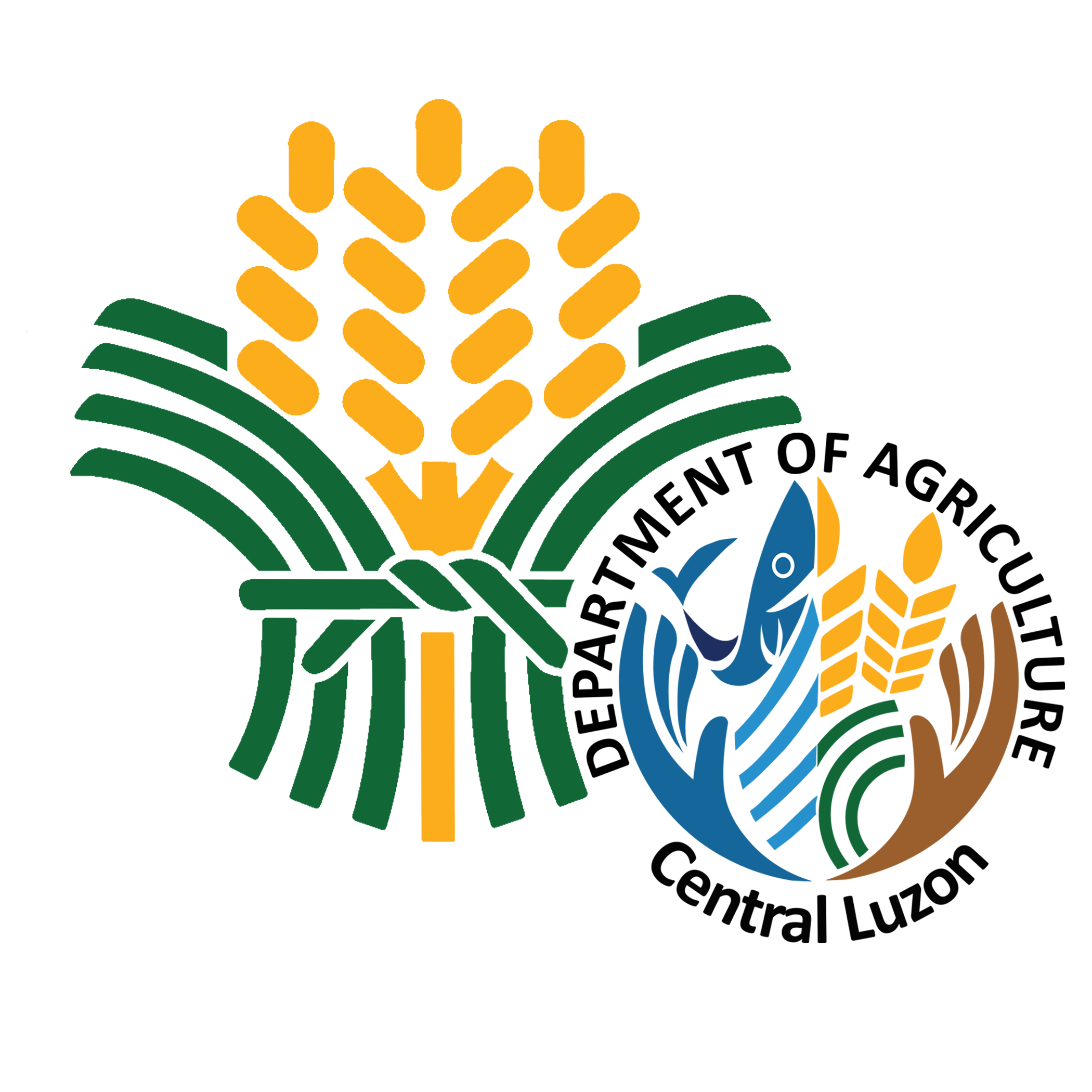REGIONAL SOILS LABORATORY
The Regional Soils Laboratory 3 (RSL 3) is a government testing laboratory under the Integrated Laboratories Division (ILD) of the Department of Agriculture, Regional Field Office III mandated to support agricultural production by providing laboratory services like soil analysis to determine soil fertility status as basis for fertilizer recommendation (right kind and amount of fertilizer) to be used by our farmers and customers.
It offers tests to support regulatory by analyzing the nutrient component of fertilizers, plant tissue and water for irrigation suitability. Heavy metal analysis for soil, fertilizer, plant tissue and water is also rendered by the laboratory to ensure food safety. RSL 3 has been supporting research, development & extension (RD&E), production, and other endeavors of the agriculture sector.
In addition, the laboratory also conducts related researches i.e. fertilizer calibration and validation trials.; updating of fertilizer guide maps; trainings and technical briefing on proper soil sampling and nutrient management, soil mobile or soil analysis using Soil Test Kit (STK) for rapid results and recommendations and the production of Compost Fungus Activator (CFA) which is use for rapid composting to enable farmers to produce their own compost or organic fertilizer. In general, the laboratory caters to soil, fertilizer, organic soil amendments, water and plant tissue testing requirements of farmers, researchers, students, local government units (LGUs) and other stakeholders in Central Luzon and its nearby regions.
LIST OF SERVICES
1. LABORATORY [SOIL, FERTILIZER, PLANT TISSUE, WATER] ANALYSIS SERVICES
Soil analysis or soil testing is a tool to diagnose fertility status of the soil. It determines the amount of essential nutrients in the soil, and if deficient, allows the recommendation of the right kind and the right amount of fertilizer or other soil ameliorant and right timing of application. Moreover, soil analysis may be used to determine the salinity, acidity and presence of heavy metals in the soil.
Fertilizer analysis (inorganic or organic) is done to determine if the guaranteed analysis printed on the product label is accurate or true. For new organic products, the test determines the nutrient content of the product and whether it passes the standard nutrient requirement set by the Philippine National Standard (PNS) for organic soil amendments.
Plant tissue analysis, on the other hand, is done to determine nutrient absorption capacity of crops under given set of soil and other environmental conditions. This is mostly done for research purposes is primarily used in research.
Water analysis is performed to determine the amount of nutrients present in the water and determine water suitability for irrigation purposes.
| Checklist of Requirements | |
| 1.Sample for Analysis | |
| a). Soil sample (Minimum of 1kg) | Proper collection of soil samples can be downloaded on this link: Downloadables |
| b). Fertilizer sample (Minimum of 500g (solid) or 250 mL (liquid)) | |
| c). Plant tissue sample (Minimum of 100g, airdried and grinded) | |
| d) Water sample (Minimum of 1L, submitted within 24hrs upon sampled) | Proper collection and handling of water samples can be downloaded on this link: Downloadables |
| 2. Sample Receiving Form (SRF)/ Soil Test Kit Refill Request Form/ Compost Fungus Activator Request Form | Regional Soils Laboratory Forms can be downloaded on this link: Downloadables |
| 3.Request letter for discount (for customers eligible for discount as stated in the RSL’s Guidelines in Giving Discount) | Guidelines can be downloaded on this link: Downloadables |
| SOIL | ||
| CHEMICAL DETERMINATION | TEST METHOD | COST (PhP) |
| Fertility Parameters | ||
| pH | Potentiometric | 100 |
| Available Phosphorus (P), ppm | Olsen, UV-Vis Bray 1, UV-Vis | 250 |
| Exchangeable Potassium (K), cmol/mg | Ammonium Acetate, pH 7 – AES | 160 |
| Organic Carbon (OC)/ Organic Matter (OM), % | Walkley and Black Colorimetric | 250 |
| Specialized Parameter | ||
| Total Nitrogen (N), % | Kjeldahl | 250 |
| Exchangeable Calcium (Ca), cmol/kg | Ammonium Acetate, pH 7 – AAS/AES | 160 |
| Exchangeable Magnesium (Mg), cmol/kg | 160 | |
| Exchangeable Sodium (Na), cmol/kg | 160 | |
| Cation Exchange Capacity (CEC Direct), cmol/kg | Ammonium Acetate, pH 7- Distillation | 300 |
| Copper (Cu), ppm | DTPA-TEA Extraction – AAS | 160 |
| Iron (Fe), ppm | 160 | |
| Manganese (Mn) ppm | 160 | |
| Zinc (Zn), ppm | 160 | |
| Moisture Content (MC), % | Gravimetric | 160 |
| Cadmium (Cd), ppm | Microwave Digestion – Inductively Coupled Plasma -OES | 500 |
| Chromium (Cr), ppm | 500 | |
| Lead (Pb), ppm | 500 | |
| Nickel (Ni), ppm | 500 | |
| Arsenic (As), ppm | 500 | |
| Mercury (Hg), ppm | 500 | |
| Salinity/Alkalinity Determination | ||
| pH | Potentiometric | 100 |
| Electrical Conductivity (EC), mS/cm | Potentiometric | 160 |
| Calcium (Ca), ppm | AAS/AES | 250 |
| Magnesium (Mg), ppm | 250 | |
| Sodium (Na), ppm | 250 | |
| Potassium (K), ppm | 250 | |
| Chloride (Cl), ppm | Titrimetric | 250 |
| Sulfate (SO4), ppm | Turbidimetric | 250 |
| Carbonate, ppm | Titrimetric | 250 |
| Bicarbonate, ppm | 250 | |
| Physical Determination | ||
| Texture | Feel Method | 30 |
| Particle Size Analysis | Bouyoucos Hydrometer | 300 |
| Rapid Soil Test | ||
| pH | Soil Test Kit (STK) (Qualitative) | 130 |
| Nitrogen (N) | ||
| Phosphorus (P) | ||
| Potassium(K) | ||
| Texture | Feel Method | |
| Soil Test Kit Refill | 300 | |
| FERTILIZER | ||
| CHEMICAL DETERMINATION | TEST METHOD | COST (PhP) |
| pH | Potentiometric | 100 |
| Total Nitrogen (N), % | Kjeldahl/Dumas | 300 |
| Total Phosphorus (P2O5), % | Vanadomolybdophosphoric Acid | 300 |
| Total Potassium (K2O), % | Flame Atomic Emission Spectroscopy | 250 |
| Organic Carbon (OC)/Organic Matter (OM), % | Walkley and Black Titrimetric | 250 |
| Sulfur (S), % (for inorganic fertilizer samples only) | Gravimetric | 300 |
| Total Calcium (CaO), % | Flame Atomic Absorption Spectroscopy | 250 |
| Total Magnesium (MgO), % | 250 | |
| Sodium (Na), ppm | Flame Atomic Emission Spectroscopy | 250 |
| Moisture Content, % | Gravimetric | 100 |
| Copper (Cu), ppm | Flame Atomic Absorption Spectroscopy | 160 |
| Iron (Fe), ppm | 160 | |
| Manganese (Mn), ppm | 160 | |
| Zinc (Zn), ppm | 160 | |
| Arsenic (As), ppm | Microwave Digestion – Inductively Coupled Plasma Optical Emission Spectroscopy | 500 |
| Cadmium (Cd), ppm | 500 | |
| Chromium (Cr), ppm | 500 | |
| Mercury (Hg), ppm | 500 | |
| Nickel (Ni), ppm | 500 | |
| Lead (Pb), ppm | 500 | |
| PLANT TISSUE | ||
| CHEMICAL DETERMINATION | TEST METHOD | COST (PhP) |
| Total Nitrogen (N), % | Kjeldahl | 300 |
| Total Phosphorus (P), % | Vanadomolybdophosphoric Acid | 300 |
| Total Potassium (K), % | Flame Atomic Emission Spectroscopy | 250 |
| Total Calcium (Ca), % | Flame Atomic Absorption Spectroscopy | 250 |
| Total Magnesium (Mg), % | 250 | |
| Sodium (Na), ppm | Flame Atomic Emission Spectroscopy | 250 |
| Copper (Cu), ppm | Flame Atomic Absorption Spectroscopy | 160 |
| Iron (Fe), ppm | 160 | |
| Manganese (Mn), ppm | 160 | |
| Zinc (Zn), ppm | 160 | |
| Arsenic (As), ppm | Microwave Digestion – Inductively Coupled Plasma Optical Emission Spectroscopy | 500 |
| Cadmium (Cd), ppm | 500 | |
| Chromium (Cr), ppm | 500 | |
| Mercury (Hg), ppm | 500 | |
| Nickel (Ni), ppm | 500 | |
| Lead (Pb), ppm | 500 | |
| WATER | ||
| CHEMICAL DETERMINATION | TEST METHOD | COST (PhP) |
| Irrigation Suitability | ||
| pH | Potentiometric | 100 |
| Electrical Conductivity, mS/cm | Potentiometric | 160 |
| Dissolved Potassium (K), ppm | Flame Atomic Emission Spectroscopy | 160 |
| Dissolved Sodium (Na), ppm | 160 | |
| Dissolved Calcium (Ca), ppm | Flame Atomic Absorption Spectroscopy | 160 |
| Dissolved Magnesium (Mg), ppm | 160 | |
| Carbonate (CO3), ppm | Titrimetric | 160 |
| Bicarbonate (HCO3), ppm | 160 | |
| Chloride (Cl), ppm | Titrimetric (Argentometric) | 160 |
| Sulfate (SO4), ppm | Turbidimetric | 160 |
| Heavy Metal Analysis | ||
| Arsenic (As), ppm | Microwave Digestion – Inductively Coupled Plasma Optical Emission Spectroscopy | 500 |
| Cadmium (Cd), ppm | 500 | |
| Chromium (Cr), ppm | 500 | |
| Lead (Pb), ppm | 500 | |
| Mercury (Hg), ppm | 500 | |
| Nickel (Ni), ppm | 500 | |
| Other Parameters | ||
| Nitrogen (Ammonia+Nitrate), ppm | Devarda Alloy – Steam Distillation | 160 |
| Nitrate Nitrogen (NO3-N), ppm | UV-Vis Screening | 300 |
| Nitro-Brucine | 300 | |
| Dissolved Phosphorus (P), ppm | Vanadomolybdophosphoric Acid | 160 |
| Dissolved Copper (Cu), ppm | Flame Atomic Absorption Spectroscopy | 160 |
| Dissolved Iron (Fe), ppm | 160 | |
| Dissolved Manganese (Mn), ppm | 160 | |
| Dissolved Zinc (Zn), ppm | 160 | |
2. PRODUCTION AND DISTRIBUTION OF COMPOST FUNGUS ACTIVATOR (CFA) Trichoderma harzianum
Compost Fungus Activator (CFA) is used in the rapid composting of rice straw, animal manure and other soft plant material. It can also be used to inhibit the growth of some plant fungal pathogens and as a deodorizer in poultry. IT IS GIVEN FREE TO PROMOTE COMPOSTING OF AGRICULTURAL CROP RESIDUES.
3. SOIL TEST KIT REFILL
Soil Test Kit (STK) is used in rapid and qualitative analysis of soil pH and nutrients (N, P and K). The result of STK analysis (qualitative method) is comparable to quantitative laboratory analysis and can be used in the computation of fertilizer recommendation. STK is designed to be used by Agriculture Extension Workers (AEWs) and farmers.
LIST OF KEY PROJECTS
- Updating of Fertility Guide Maps and Zinc Maps
Maps may be downloaded on this link: https://drive.google.com/drive/mobile/folders/1duDEfMlM7drUhu-UDvuAFo_Xcrr7pehM?fbclid=IwZXh0bgNhZW0CMTEAAR02BCDdwKHcojr6JhoSZieYL54eTWL_NMo-bOwZeWQkdEdNBCR532LKB_k_aem_CQnLZrHanXT6O7PS-_CPmw
- Mobile Soils Laboratory
Downloadables
STK-Memo
Guidelines for Laboratory Fees
Soil Sampling Procedure
Water Sampling Procedure
CFA Request Form
STK Refill Request Form
Sample Receiving Form – Soil
Sample Receiving Form – Fertilizer
Sample Receiving Form – Water
Sample Receiving Form – Plant tissue
CONTACT INFORMATION:
Email: ild.rsl@rfo3.da.gov.ph

